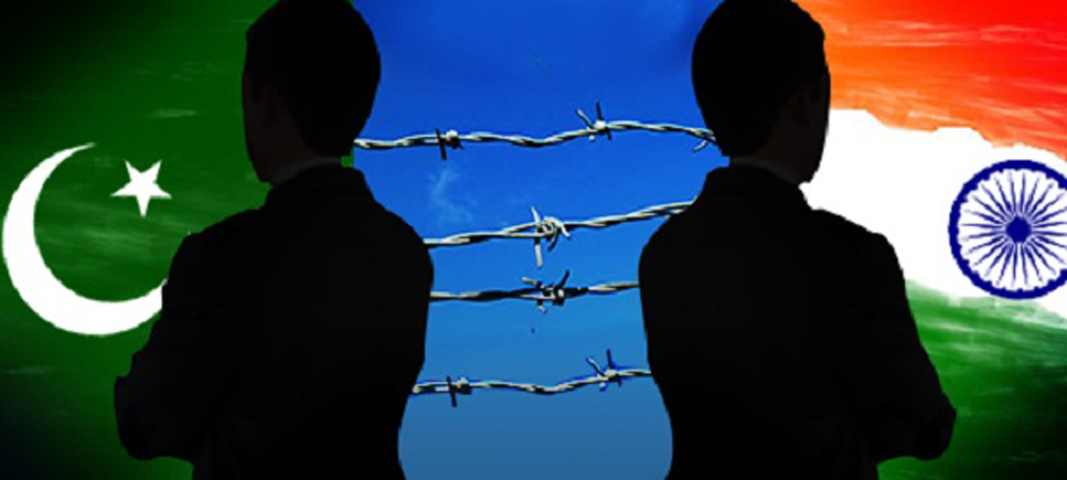Afia Ambreen

Recently, Pakistan Senate unanimously passed a resolution condemning Prime Minister Narendra Modi’s recent remarks in which he described Pakistan as the “mothership of terrorism”, calling it a baseless propaganda to divert international attention from atrocities in Kashmir. The resolution moved by Sehar Kamran, a lawmaker of the opposition Pakistan People’s Party appreciated the reaction of international community to this baseless propaganda by the Indian Prime Minister. The resolution said that the statement made by Modi was an effort to divert the attention of the international community from the Indian atrocities against the people of Kashmir.
Modi during the BRICS Summit in Goa in last October had referred to Pakistan as the “mothership of terrorism linked to terror modules across the world”. Eighth BRICS Summit was held in India on 15-16 Octobers. BRICS (Brazil, Russia, India, China and South Africa) was formed in 2011 with the aim of using members´ growing economic and political influence to challenge Western hegemony. The theme of India’s BRICS Chairmanship is Building Responsive, Inclusive and Collective Solutions. It is pertinent to mention that Modi, who is pushing to isolate Pakistan, urged his peers to take a strong united stand against Pakistan. However, a joint statement at the end of the summit only referred to a vague goal of combating cross-border terrorism and its supporters without mentioning Pakistan, which was the key thrust of India. . PM Modi calling Pakistan the “mothership of terrorism linked to terror modules across the world” deployed the same tactics at BRICS summit in Goa, as in UNO earlier to defame Pakistan. The Goa Declaration did talk of the menace of terrorism stalking the world in general terms. It addressed the global concern over terrorism, the battle being fought over it in Syria and other West Asian countries. It omitted mentioning Pakistan, the “mothership”, in any manner whatsoever. Modi appears to have left BRICS leaders unimpressed and failed using the BRICS platform to isolate Pakistan.
On the other hand, Foreign Office Spokesperson Nafees Zakaria said the confessional statement of RAW agent Kulbhushan Yadav had proved that Indian secret agencies were continuously involved in subversive and terrorist activities in Pakistan. It is important to mention here that Pakistan had asked the Indian government to pursue the path of dialogue and engagement, rather than confrontation, violence and terrorism. India has always shirked from dialogue to resolve all outstanding issues, including the Jammu & Kashmir dispute. Pakistan believes just resolution of the Kashmir dispute is essential for normalisation of relations with India. Ironically, Indian Defence Minister Manohar Parriker also stated that they would use terrorists against Pakistan. Indian statements on Balochistan at the highest political level are also undeniable proof of Indian involvement in perpetrating terrorism and terror financing in Pakistan. Moreover, India carried out 330 ceasefire violations including 290 violations on Line of Control and 40 on the Working Boundaries till December last. Almost 45 civilians were killed and 138 injured in these violations. Indian Held Kashmir today was the most militarized zone in the world with one Indian soldier for every 12 Kashmiris. Over several decades Indian occupation forces have massacred over 1.5 million Kashmiris. During the current phase of uprising since 8 July, 2016 they have once again unleashed the reign of terror targeting innocent civilians including children. P ellet guns have been used to deliberately target the eyes of peaceful protesters resulting in permanent blindness of around 1,000 people, including young girls and children. The evil designs of Indian government should be highlighted at all the international fora. Pakistan will continue political, diplomatic and moral support to the Kashmiris in their just struggle for right to self-determination.
India is making failed attempts to link the Kashmir freedom movement with cross border infiltration and terrorism but its campaign has also failed at the diplomatic fronts. India is also afraid of Pakistan’s success in fight against terrorism. Pakistan’s success has been recognised by the world and world bodies. India should take a look at its own state of affairs before pointing fingers at others. India itself has been involved in terrorist activities in Pakistan. Pakistan is a victim of terrorism and there is ample evidence that India is involved in nefarious activities in Pakistan. Dialogue rather confrontation is the core element of Pakistan’s foreign policy and Islamabad has time and again called upon India to engage in talks.



